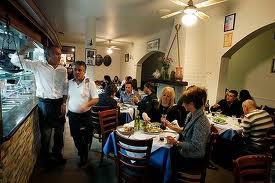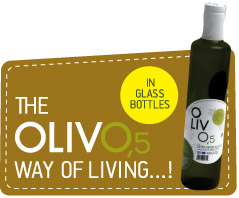DIET
![]()

The Mediterranean Diet is a modern nutritional recommendation inspired by the traditional dietary patterns of Greece and especially the island of Crete, southern Italy, southern France, Spain and parts of the Middle East.
On the 17th of November 2010, UNESCO, recognised this diet pattern as an Intangible Cultural Heritage of Italy, Greece, Spain and Morocco, thus reinforcing it not only as a fundamental part of their history and background, but also as a great contribution to the world.
Despite its name, this diet is not typical of all Mediterranean cuisine. In Northern Italy, for instance, lard and butter are commonly used in cooking, and olive oil is reserved for dressing salads and cooked vegetables. In North Africa, wine is traditionally avoided by Muslims. In both North Africa and the Levant, along with olive oil, sheep's tail fat and rendered butter (samna) are traditional staple fats.

The Mediterranean diet includes high consumption of olive oil, fresh fruits, vegetables, grains and pulses, moderate to high consumption of fish, moderate consumption of dairy products (mostly cheese and yogurt) and wine and low consumption of meat and meat products.
Cretan cuisine is an outstanding example of the principles of this diet, with great tasting simple dishes made with fresh ingredients and plenty of olive oil.



















